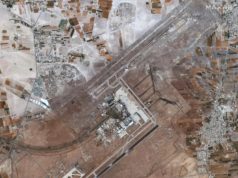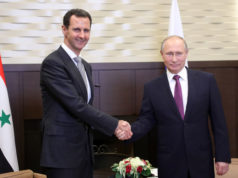WASHINGTON, D.C. — President Barack Obama bypassed the U.S. Senate Wednesday and appointed four new U.S. ambassadors to fill empty envoy positions in Azerbaijan, Syria, Turkey, and the Czech Republic. Lawmakers had previously blocked or refused to consider the nominees’ confirmations for months. The appointees can now serve without Senate confirmation until the end of the next session of Congress, approximately one year from now.
Of all, the most controversial appointment is the new ambassador to Syria, Robert Ford, originally nominated by the president in February. Ford will fill a position vacant since 2005, when former President Bush severed ties with Damascus and recalled its U.S. ambassador over Syria’s alleged involvement in the assassination of former Lebanese Prime Minister Rafik Hariri.
Upon entering office, President Obama differentiated his foreign policy strategy from his predecessor’s by extending a diplomatic hand to America’s adversaries in the Middle East, notably Syria and Iran. Part of that plan included appointing an ambassador to the former country with the hopes of pulling it away from the latter’s orbit. So far, no such luck.
In fact, since the president announced his nominee for a U.S. envoy to Syria in February, Damascus has continued to act belligerently, from arming Hezbollah with increasingly sophisticated weapons to accusing the U.S. of creating chaos worldwide just two months ago.
Obama’s move has only empowered Syria. On Thursday, senior Syrian official Issa Darwish said that the appointment means “Syria has proven, as President Bashar al-Assad has, that it is for peace.” Hardly. By appointing an ambassador, the president has just rewarded Syria’s bad behavior as a world menace over the last five years. Normalized relations with the United States is a gift to be earned by countries, and Damascus has not earned it.





